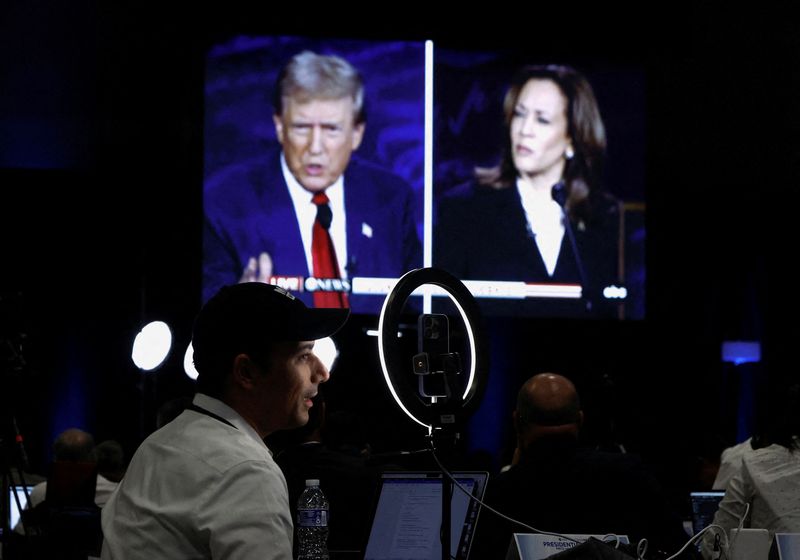
Analysts at Deutsche Bank have provided a detailed examination of the fiscal implications that may arise depending on which candidate secures the presidency and how Congress is structured post-election.
Former President Donald Trump and Vice President Kamala Harris have both advanced proposals that diverge in terms of their economic impact.
Deutsche Bank’s baseline scenario assumes the full extension of the Tax Cuts and Jobs Act of 2017 and measures both candidates’ plans against this benchmark.
Trump’s platform, as detailed by Deutsche Bank, includes reducing corporate taxes to 15%, eliminating taxes on Social Security benefits, and de-regulating industries.
However, his trade policy, particularly the proposed 10% universal tariff and a potential 60% tariff on Chinese goods, presents considerable risks to growth.
While the revenue from tariffs could offset some tax reductions, the overall impact could still lead to slower growth.
In the absence of tariffs, Trump’s policies are expected to provide a short-term boost to GDP, but this fades as the deficit widens, resulting in a negative impact on growth by 2028.
Harris, on the other hand, proposes raising corporate taxes back to 28%, increasing the top marginal income tax rates for high earners, and expanding social benefits like child care and paid family leave.
These policies are more focused on redistribution, and though they generate revenue to fund social programs, they are likely to exert a drag on economic growth in the near term, especially if implemented in full.
However, Deutsche Bank notes that under a Harris administration, if Congress remains split, some of her more expansive tax policies could be tempered, potentially softening their impact on growth while keeping deficits somewhat contained.
Both candidates’ plans pose risks to the federal deficit. Deutsche Bank’s analysis indicates that in scenarios where Trump’s proposals, including tariffs, are implemented, the federal deficit could shrink slightly, though this is more due to higher tariff revenues than fiscal discipline.
Meanwhile, under a Harris sweep, the deficit is projected to grow less sharply than under Trump’s non-tariff policies, although it still poses challenges to long-term fiscal sustainability.
Deutsche Bank flags that the composition of Congress could have a moderating effect on policy outcomes.
A split Congress, regardless of who wins the presidency, could provide a positive boost to growth compared to a unified government by fostering negotiation and compromise, except in the area of trade, where tariffs would remain a drag.
The presence of checks and balances is likely to prevent the implementation of the more extreme elements of both candidates’ fiscal agendas, thereby limiting the impact on the deficit and fostering a more balanced economic outcome.
To read the full article, Click Here
